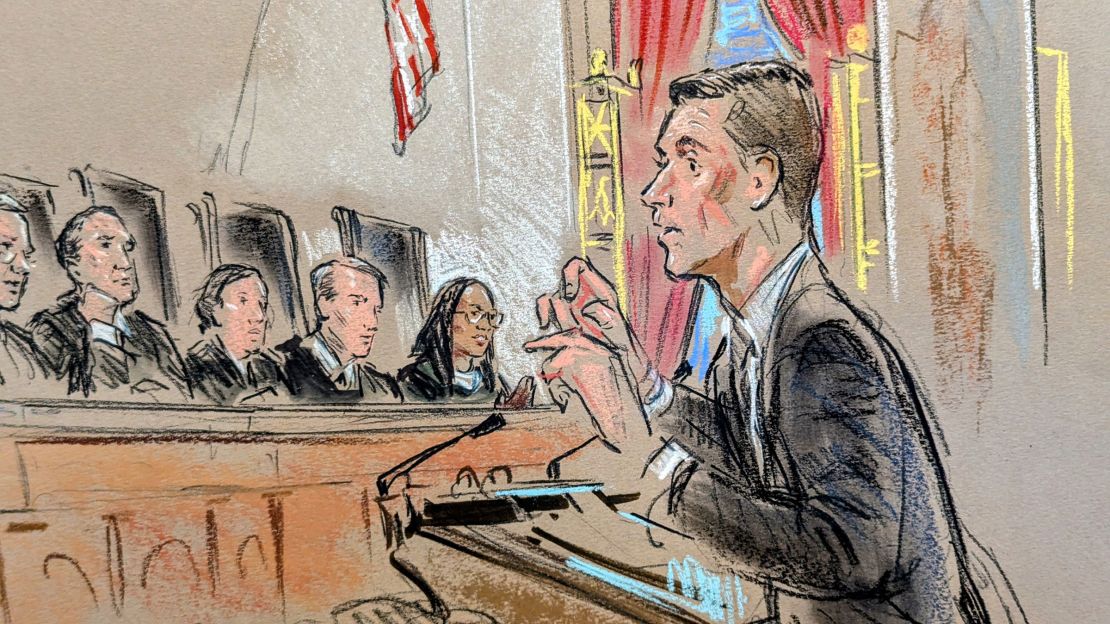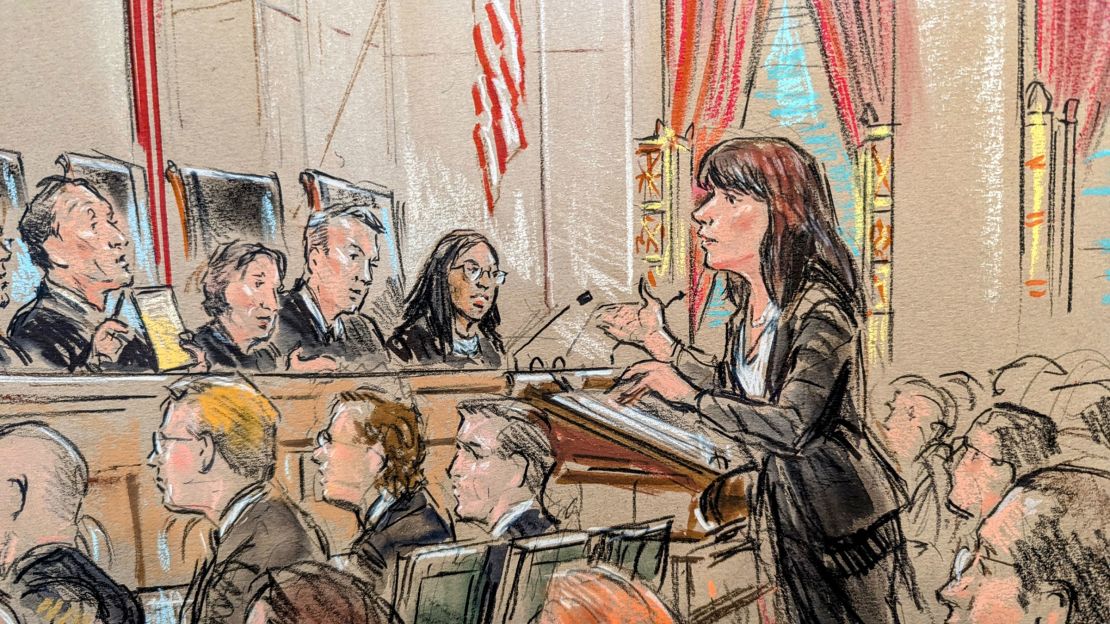The Supreme Court on Tuesday signaled a willingness to uphold a Biden administration regulation on “ghost guns,” mail-order kits that allow people to build untraceable weapons at home and that are turning up at crime scenes with greater frequency.
In one of the most closely watched cases of the year, the high court must decide if the Bureau of Alcohol, Tobacco, Firearms and Explosives overstepped its authority with a 2022 regulation that would require ghost gun manufacturers to include serial numbers on the kits and perform background checks on people who purchase them.
Several of the court’s conservatives — and all of its liberals — appeared skeptical of the notion that the kits are geared toward a tradition of gunsmithing hobbyists. Chief Justice John Roberts, in particular, brushed off the idea that building the kind of gun kits at issue was equivalent to someone working on a classic car.
“Drilling a hole or two, I would think, doesn’t give the same sort of reward that you get from working on your car on the weekends,” Roberts said to the lawyer representing the kit manufacturers. “My understanding is that it’s not terribly difficult for someone to do this.”
Peter Patterson, representing the manufacturers and groups that challenged the regulation, said that building the kits is far more complicated than the administration has suggested. In briefing, supporters of the regulation say that most Americans would view a bicycle as a bicycle, even if its pedals were missing. A build-at-home couch from Ikea, they argue, is still a couch before it is assembled.

How to draw the line between a collection of parts and a finished product occupied much of the argument, which lasted over an hour.
“Some of us who … don’t have a lot of mechanical ability, have spent hours and hours and hours trying to assemble things that we’ve purchased,” Justice Samuel Alito quipped, prompting chuckles in the courtroom.
“I’m with you on that one, Justice Alito, as someone who struggles with Ikea furniture,” quipped US Solicitor General Elizabeth Prelogar, representing the Biden administration.
Though not a Second Amendment dispute, the lawsuit put guns back on to the high court’s docket at a time when its 6-3 conservative majority has tacked to the right on that issue and many others. In June, the conservative justices court struck down a ban on bump stocks, devices that convert semi-automatic rifles into a weapons that can fire hundreds of rounds a minute, for instance.
But there were signs that some members of the court’s conservative wing saw this case differently than the one dealing with bump stocks. Even before the parties entered the courtroom Tuesday, the justices had hinted their thoughts on the dispute by siding with the Biden administration — twice — on the emergency docket. On a 5-4 vote, the court allowed the regulation to remain in place while the litigation continued.
Though it doesn’t necessarily reflect the outcome of the case, both Roberts and conservative Justice Amy Coney Barrett sided with the administration at the time.
Alito led the questioning against the government, signaling skepticism over the idea that a collection of unassembled parts can be considered a gun.
“Here’s a blank pad and here’s a pen, all right? Is this a grocery list?” Alito asked holding up a pad in the courtroom. “If I show you – I put out on a counter some eggs, some chopped up ham, some chopped up pepper and onions, is that a western omelet?”
Prelogar that a pen and pad could be used for any number of things – not just a grocery list – and the ingredients could be used to make other dishes. The difference here, she said, is that the ghost guns are marketed to be built into guns and serve no other conceivable purpose.

Barrett jumped in to challenge Alito’s hypothetical.
“Would your answer change if you ordered it from HelloFresh and you got a kit and it was like turkey chili, but all of the ingredients are in the kit?” she said, referring to the food kit delivery service and describing a context that looks more like how gun kits are sold.
Prelogar said that was a more apt analogy.
“If you bought from Trader Joe’s some omelet-making kit that had all of the ingredients to make the omelet,” she said, “we would recognize that for what it is.”

Conservative Justice Brett Kavanaugh aired a different concern: that the administration’s regulation would leave some ghost gun sellers unaware that they are breaking the law.
“This is an agency regulation that broadens a criminal statute beyond what it had been before,” Kavanaugh asked. “What about the seller, for example, who is truly not aware — truly not aware — that they are violating the law and gets criminally charged?”
Prelogar said prosecutors would have to prove that the seller was willfully violating the law. Kavanaugh described Prelogar’s answer as “helpful.”
Ghost guns are kits that a user can purchase online to assemble a fully functional firearm at home. The weapons carry no serial number, do not require background checks and provide no transfer records for traceability. Critics say they are attractive to people who are otherwise legally prohibited from buying firearms.
President Joe Biden’s administration told the court in briefing that police departments have faced an “explosion of crimes involving ghost guns” in recent years. In 2017, police submitted about 1,600 ghost guns recovered at crime scenes for tracing. Four years later, the number had grown to more than 19,000.
At issue is a 1968 law that requires manufacturers and dealers to run background checks, keep sales records and include serial numbers on firearms. The ATF concluded that the law covers the kits, which the agency said can quickly be built into functioning firearms. The rule does not prohibit the sale or possession of the kits but instead requires serial numbers and background checks.
Advocacy groups and five companies that manufacture the kits sued, arguing that the regulation wasn’t permitted by the law. The kits aren’t weapons, they said, but rather parts.
A US district court in Texas threw out the rule and the conservative 5th US Circuit Court of Appeals mostly upheld that decision.
Importantly, the Supreme Court has weighed into the case twice on its emergency docket, allowing the regulation to remain in place temporarily while the legal wrangling continued. Last year, five justices sided with the Biden administration in the first emergency request.
After that decision, a lower court stepped in to block the regulations as applied to two manufacturers. The Supreme Court again rejected that decision, allowing the regulations to remain in effect.
A decision in the case, Garland v. VanDerStok, is expected by next summer.
This story has been updated with additional details.
CNN Chief Supreme Court Analyst Joan Biskupic contributed to this report.

